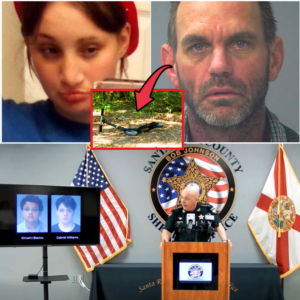In the shadowed corridors of Windsor Castle, where royal legacies are both forged and fractured, a new chapter of turmoil is unfolding for the House of York. Princess Beatrice, 37, and Princess Eugenie, 35—the daughters of the disgraced Prince Andrew—are grappling with the radioactive fallout from their father’s unrelenting scandals. As Andrew surrenders his Duke of York title amid fresh revelations tied to his friendship with convicted sex offender Jeffrey Epstein, experts are sounding the alarm: the York family brand has become “truly toxic,” a poisoned chalice that threatens to taint the princesses’ reputations, careers, and roles within the monarchy. This seismic shift, announced by Buckingham Palace on October 17, 2025, marks a humiliating nadir for Andrew, but it’s his devoted daughters who now face the harshest scrutiny, caught between familial loyalty and the unforgiving glare of public opinion.
The catalyst for this latest upheaval is the posthumous memoir of Virginia Giuffre, one of Epstein’s most prominent accusers, who tragically took her own life in April 2025 at age 41. Titled “Nobody’s Girl,” the book paints a harrowing portrait of exploitation, alleging that Epstein and his accomplice Ghislaine Maxwell groomed her into sexual encounters with powerful men, including Andrew. Giuffre describes an “orgy” involving underage girls and the prince, claims that echo her 2022 civil lawsuit against him, which Andrew settled out of court for a reported £12 million without admitting wrongdoing. The memoir’s release has reignited global outrage, with unsealed court documents revealing a 2011 email from Andrew to Epstein: “We are in this together.” Sent the same day a infamous photograph surfaced showing Andrew with his arm around a teenage Giuffre, flanked by Maxwell, the message suggests a deeper entanglement than Andrew has ever acknowledged.
Andrew’s decision to relinquish his titles—Duke of York, Knight of the Garter, and Earl of Inverness—comes as no surprise to palace watchers. At 65, the once-favored son of Queen Elizabeth II has been a pariah since his disastrous 2019 BBC Newsnight interview, where he bizarrely claimed an inability to sweat due to Falklands War adrenaline and recalled a family trip to Pizza Express in Woking as an alibi. Stripped of military patronages and public duties in 2022, Andrew has clung to Royal Lodge, his sprawling Windsor estate, funded by mysterious sources amid whispers of financial woes. Now, reduced to plain “Prince Andrew,” he faces eviction pressures from King Charles, who has slashed his £250,000 annual allowance. Yet, Andrew’s statement remains defiant: “These continued accusations distract from His Majesty’s work and the Royal Family’s service.” Friends describe him as isolated, pacing his mansion like a caged animal, his golf outings a rare escape from the siege of protesters outside his gates.
But the true victims in this sordid saga, experts argue, are Beatrice and Eugenie. The sisters, both mothers now—Beatrice to Sienna, 4, and August, born in 2024; Eugenie to August, 4, and Ernest, 2—have strived to carve independent paths. Beatrice works as vice president of partnerships at Afiniti, a tech firm, while Eugenie directs at Hauser & Wirth art gallery. They’ve embraced charity work, with Eugenie co-founding The Anti-Slavery Collective and Beatrice supporting dyslexia causes through her own experiences. Yet, their father’s sins cast a long shadow. Royal commentator Richard Fitzwilliams, in a scathing assessment, declared: “They are well-adjusted and have careers as well as doing charitable work. However, the York’s brand is truly toxic.” He warns that associations with Andrew could derail their professional lives, as donors and partners shy away from the Epstein stigma.
The “toxic” label isn’t hyperbole. In the wake of Giuffre’s memoir, seven charities severed ties with Sarah Ferguson, Andrew’s ex-wife and the girls’ mother, in a single day. Fergie, 66, who shares Royal Lodge with Andrew despite their 1996 divorce, has her own baggage—from toe-sucking scandals in the 1990s to allegations of accepting Epstein cash. Experts like Hilary Fordwich suggest Beatrice and Eugenie may need to distance themselves radically: “To salvage their futures, they might consider dropping the York surname altogether, focusing solely on their husbands’ families.” Beatrice is married to property developer Edoardo Mapelli Mozzi, Eugenie to brand ambassador Jack Brooksbank—both non-royal lineages that could offer a clean slate.
Public appearances underscore the strain. At the Duchess of Kent’s funeral in September 2025, Andrew’s attempt at small talk with Prince William and Kate Middleton was met with icy silence, William turning away in visible disdain. Beatrice and Eugenie, seated nearby, wore expressions of quiet mortification. Social media erupted with memes labeling it “William’s Freeze-Out,” amplifying the family’s division. Prince William, 43, is reportedly “hopping mad” at his uncle, pushing Charles for a full excision to protect the monarchy’s modern image. As heir apparent, William envisions a slimmed-down, accountable Firm—championing mental health, environment, and early childhood—unburdened by Andrew’s “canker.” Charles, 76 and recovering from cancer, treads cautiously, valuing brotherly loyalty over William’s pragmatism.
The princesses’ childhoods, marked by privilege and parental chaos, add layers to their predicament. Raised amid Fergie’s extravagant whims—banquets of untouched roasts discarded for crisps—and Andrew’s globe-trotting as trade envoy, they navigated divorce at young ages. Epstein attended Beatrice’s 18th birthday party, a detail that now haunts. Dubious gifts flowed: £750,000 for Beatrice’s wedding from a Turkish millionaire, £15,000 for Eugenie’s birthday from shadowy sources. Middle Eastern ties, including jewelry from Abu Dhabi’s royals, fueled their lifestyles but now invite scrutiny. Beatrice’s 2009 BMW theft—keys left in the ignition post-protection officer dismissal—highlights their detachment from reality.
Professionally, the fallout is palpable. Beatrice’s tech role at Afiniti has drawn whispers, given founder Zia Chishti’s own controversies. Eugenie’s art world gigs face donor hesitancy. Charities they support, like anti-slavery and dyslexia groups, risk guilt by association. Socially, the sisters—once fixtures at Ascot and garden parties—now navigate invitations warily. A crisis meeting with William, palace secretaries Clive Alderton and Tobyn Andreae, looms, per insider reports, to hash out their futures. Will they retain HRH styles? Inherit Royal Lodge? Or fade into private life?
Experts diverge on prognosis. Some, like Fordwich, praise their resilience: “They can hold their heads high; they’ve built lives beyond the palace.” Others, like Fitzwilliams, foresee isolation: “The York toxicity is generational—Beatrice and Eugenie’s children may inherit the curse.” Public polls reflect waning support: YouGov’s October 2025 survey shows 42% of under-35s deem the monarchy “outdated,” with Andrew cited as a prime reason.
Yet, glimmers of hope persist. Beatrice’s recent glow-up—elegant at events, advocating for neurodiversity—earns plaudits. Eugenie’s motherhood posts on Instagram humanize her. Both sisters, protective of Andrew, have avoided public criticism, echoing Fergie’s mantra of family unity. As Charles balances health and harmony, William’s vision may prevail: a monarchy purged of scandals, focused on service.
In this royal earthquake, Beatrice and Eugenie stand at the epicenter—innocent heirs to a tainted throne. The York brand’s toxicity, born of Epstein’s web and Andrew’s hubris, demands reinvention. Whether they emerge stronger or scarred remains the monarchy’s next gripping drama. For now, the princesses soldier on, their crowns heavier than ever.

